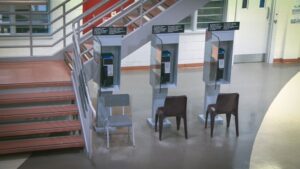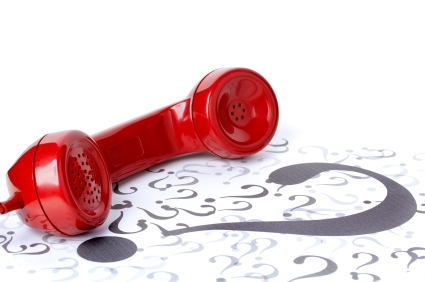 Here is the latest summary of recent news articles regarding contraband cell phones in prisons around the world. I call these periodic round up of news items, “Wireless Prison Payphone™ Briefs” because this is essentially what smuggled mobile phones in jails have become – a substitute for the current wall mounted prison payphones.
Here is the latest summary of recent news articles regarding contraband cell phones in prisons around the world. I call these periodic round up of news items, “Wireless Prison Payphone™ Briefs” because this is essentially what smuggled mobile phones in jails have become – a substitute for the current wall mounted prison payphones.
Two years ago, we explored some of the news regarding wireless prison tablet devices; which highlighted how prison payphones were being replaced by a secure wireless device with cell phone capabilities that will reduce the demand for contraband cell phones. These articles demonstrated the fact that regardless of whether the device takes the form factor of a tablet or a cell phone, wireless voice capabilities will be the key service offering in reducing contraband and recidivism.
We thought it might be worthwhile to once again survey the recent news on this wireless technology deployment trend in prisons and jails.
- Inmates are entitled to phone privileges. There are 100 phones in the jail, about six for each cluster of cells known as a pod. Each pod can hold 64 inmates and has six phones — and they don’t always work. In May, all phones in one pod failed for five days. You can see why there would be disputes among inmates trying to make phone calls. Instead of standing in line waiting for a phone and then paying handsomely for the privilege, inmates will have their own tablets to use to make calls. (Source)
- Phone calls on mobile devices make sense. Allowing people to make phone calls from their tablet is basically a good thing. Instead of using a shared phone in a public area (probably with other people waiting in line), callers can now talk in more private locations. (Source)
- The Alabama Department of Corrections (ADOC) has recently released a plan aimed to lessen the cost of inmates calling loved ones while behind bars, simultaneously increasing access to educational tools for incarcerated individuals. The tablets would also function as telephones. According to WYVY-TV, the plan will be included as part of the inmate telephone contract that will be sent out at the end of the year. (Source)
- All South Dakota DOC inmates who want a tablet now have a tablet. Inmates get longer phone calls with family and easy access to prison documents. (Source)
- According to Captain Stewart, since the inmates have been using the tablet there’s been a drastic decrease in inmate problems. “Our suicide attempts are down 66%, our successful suicides are down 100%, our inmate on staff assaults are down 60%, our inmate on inmate assaults are down” (Source)
- Amanda Michika, who also works for the Pima County Sheriff’s Department noted how the tablets have proven to reduce suicidal ideations and decrease the number of fights, including inmate-on-staff altercations. “All of the inmates that we have here are pre-sentenced inmates. They haven’t been convicted of any crime. We afford them the opportunity to have the same rights they would have outside when it comes to electronics,” Michika said. As Harms put it, the tablets provide an escape, whether its downloading music, reading books or chatting with family. “With over 200 men in one pod, there’s a lot of tension, a lot of testosterone. It means I can receive pictures from my loved ones and talk to my loved ones whenever I want,” Harms said. (Source)
- Multi-Blockchain System for Inmate Forensics - April 2, 2024
- Blockchain to Secure Attorney-Inmate Privacy for Prison Calls - June 28, 2023
- meshDETECT® Announces Grant of Ninth Patent For Blockchain Wireless Services - August 26, 2022




